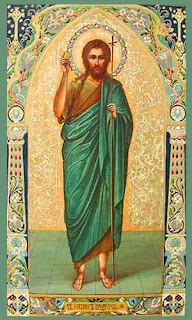Overcoming
Anger: Love, Action, and Likeness of Christ
Mankind is created in the image of God and as Christians we are called by God to be like Him. The essence of this likeness of Christ is to love. Our Lord tells us, "And now I give you a new commandment: love one another. As I have loved you so you must love one another", (John 13, 34-35). What greater love could the Father have for us that even though He is God, nevertheless, sent His Son to take on our nature so we — all mankind, in fact, the entire universe, be lifted up to Him? Listen to some of the things Our Lord has told us about Love: "If you forgive the faults of others your Heavenly Father will forgive yours. If you do not forgive others, neither will your Father forgive you", (Matthew 6, 14-15). "My Son your sins are forgiven" (Mark 2:5). "If you want to avoid judgment, stop passing judgment" (Matthew 7:1). READ MORE







ArchbishopofShanghaiandSanFrancisco.jpg)










































